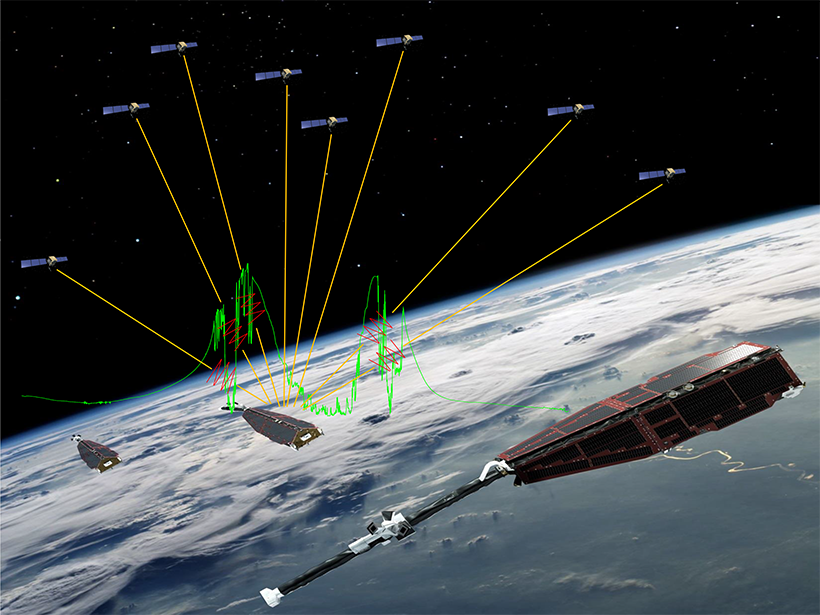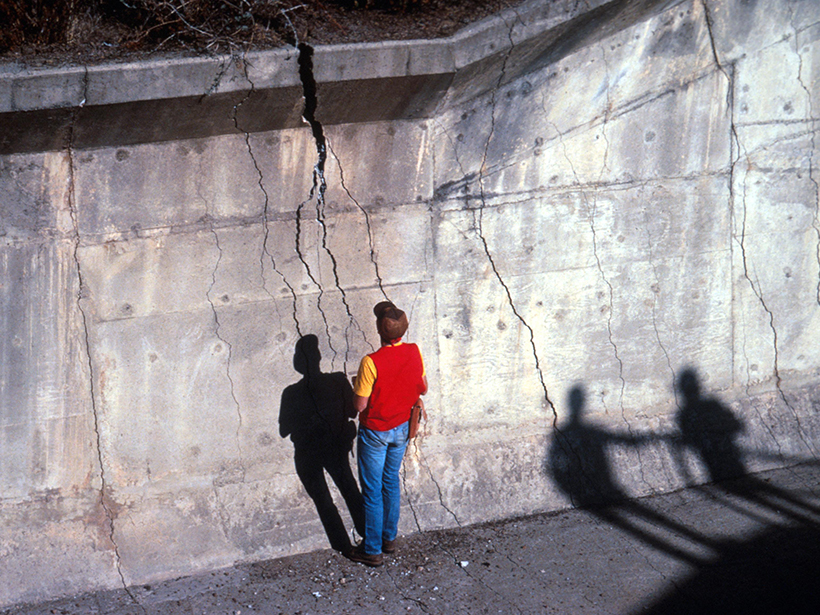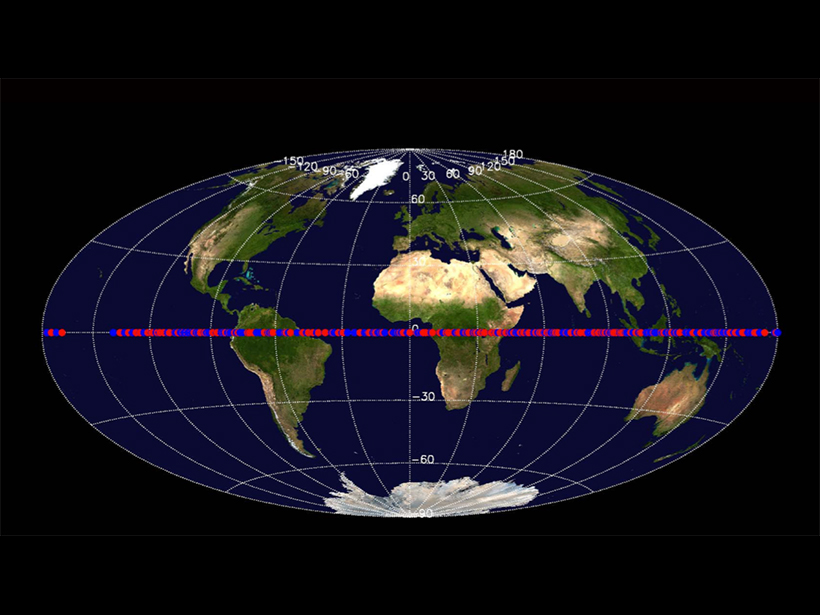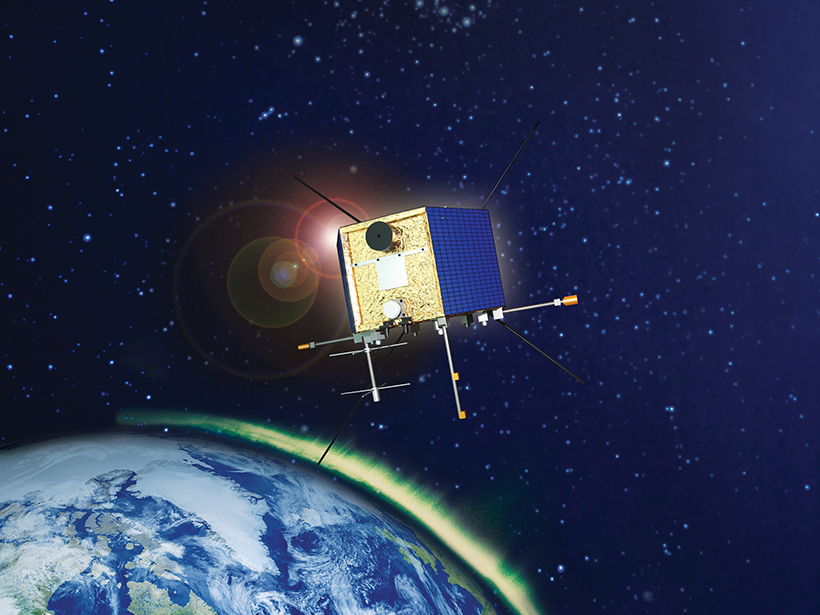Using data from the European Space Agency's Swarm mission, scientists find that abrupt drops in the ionosphere's electron density may cause low-orbiting satellites to lose contact with GPS satellites
L. Crane
Leah Crane, a Research Spotlight writer for Eos.org, is a freelance science writer focusing on physics and space. She holds a bachelor’s degree from Carleton College in physics and astronomy.
All Earthquakes Are Created Equal
A study of the development of earthquakes shows that the size of the initial rupture does not determine its intensity or range later on.
How Vague Historical Writings Help Scientists Predict Floods
By including imprecise historical written records in their calculations, researchers were able to decrease uncertainty in estimations of future flood frequency.
Forecasting Space Weather Like Earth Weather
Researchers find that as with terrestrial weather, ensemble forecasting—which uses several different models simultaneously—is the best way to produce accurate and precise forecasts of space weather.
Predicting Space Weather, Protecting Satellites
A new model predicts electron and ion fluxes at geosynchronous orbit an hour ahead of time, allowing satellite operators to protect their instruments.
Tracking Ions at the Edge of the Atmosphere
The first results from a recently launched satellite hold promise for studying solar storms, the very top of Earth's ionosphere, and how the atmosphere is evolving.
Mapping the Movement of Energy Under Japan
New research on the energy waves caused by earthquakes provides the most detailed map to date of the subduction zone beneath Japan.
Tackling the Paris Temperature Targets
The global temperature targets established in Paris in 2015 are ambitious; new research examines what it would take to achieve those targets.
Volcanic Eruptions Stir an Already Complex Atmosphere
A study of Earth's atmospheric response to major volcanic eruptions seeks to reconcile contradictions between observations and climate models.








